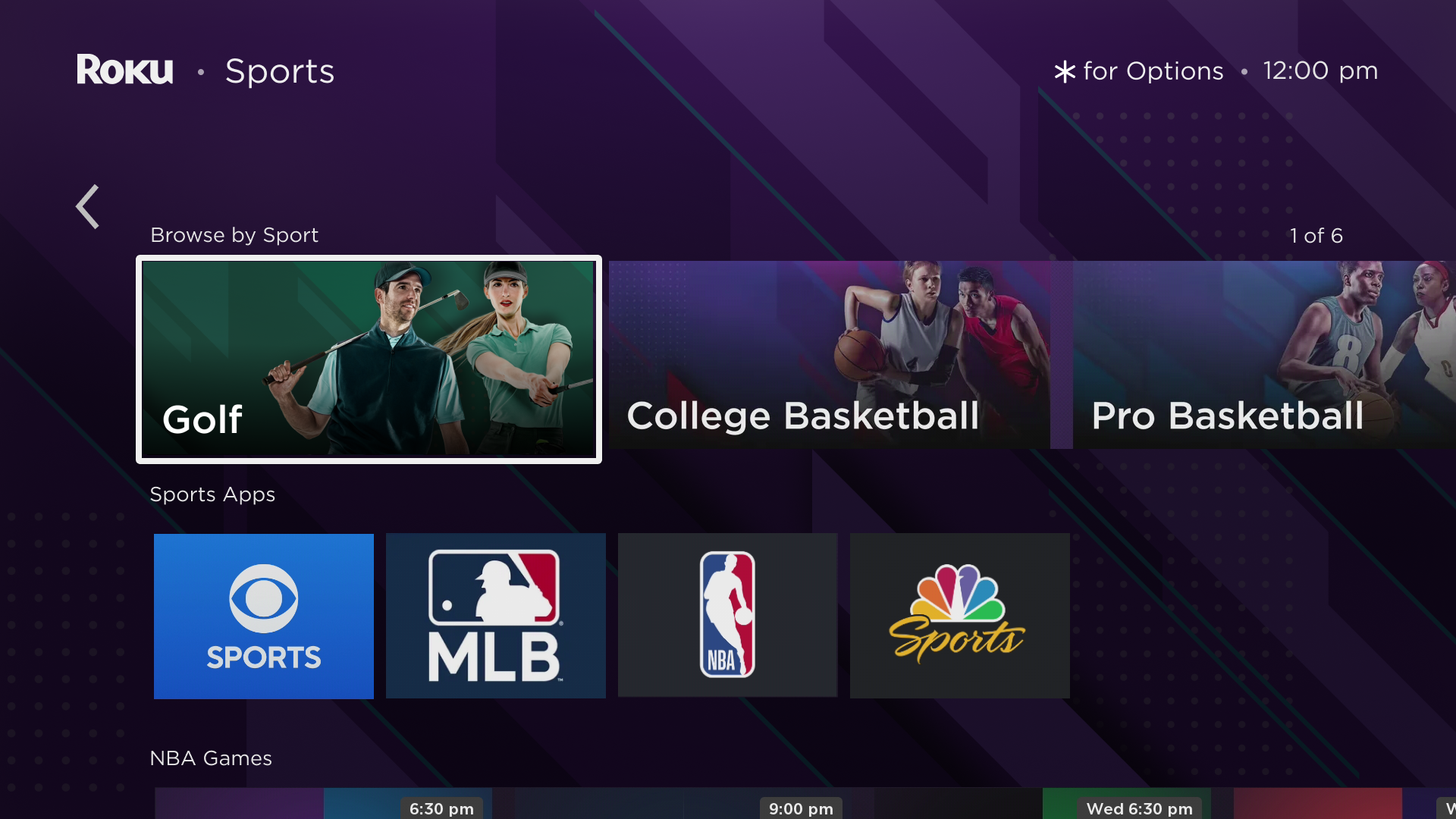Roku has announced that its first Roku-branded TVs are now available in the US and can be purchased exclusively through Best Buy. Previously teased during CES 2023, the new TVs are divided into two series, Roku Plus and Roku Select, and will be sold in screen sizes ranging from 24 inches up to 75 inches. The Plus series TVs are QLED models with a quantum dot layer and a local dimming LED backlight, two features regularly found in the best 4K TVs. They support Dolby Vision and HDR10+ high dynamic range, Wi-Fi 6 for streaming, and feature Automatic Brightness control to adjust the set’s light output based on ambient room lighting. Audio has also been paid attention to on Roku’s new TVs, with the Plus series getting built-in Dolby Atmos-certified speakers and an Auto Speech Clarity feature. Wireless expandability will let you add the company’s forthcoming Roku Wireless Soundbar, along with its Wireless Bass subwoofer and Wireless Speakers in the rear of the room for a full surround sound package. Bluetooth private listening using wireless headphones is another audio option, and Roku’s remote control also features a headphone output for connecting wired headphones. There’s quite a bit going on with the Roku TV remote control beyond that headphone jack. Pressing a mic button gives you hands free voice control of the TV, and another feature lets you locate the remote by saying, “Hey Roku, where’s my remote?” It also has a rechargeable battery, which immediately makes it a more eco-friendly option than the vast majority of TV remote controls. The Select Series TVs are split between 4K and HD offerings. These are standard LED TVs (no QLED or local dimming) with HDR10+ support on the 4K models. The 4K TVs also come with an Enhanced Voice Remote. Being Roku TVs, the new Plus and Select series models are of course all powered by the company’s Roku OS smart interface – the same one found in Roku streamers and third-party TVs. The company also announced numerous updates for Roku OS, including a Local News feature that lets users personalize their news by location as well as stream it from major cities in the US. According to Roku, AI-powered news recommendations are now available for a fully curated viewer experience. Sports also get consideration in the Roku OS update, with a personalized Sports experience that uses the viewer’s location and preferred sports and teams to determine the content feed. According to Roku, CBS Sports, MLB.TV, NBA App, and NBC Sports will all soon join the list of supported channels. Another recently added feature, Continue Watching, gives viewers a central location to re-visit programs they had previously viewed (and possibly forgotten about) and now offers instant updates. Prime Video and discovery+ have been added to the supported channels list, joining HBO Max, Netflix, Paramount+, and The Roku Channel. Roku’s mobile app is also getting updates, with key changes being made to the account hub and home screen. Previously available for Roku-powered TVs, a “Guide” Button will now let viewers launch the Live TV Channel Guide from the mobile app when streaming via a Roku player. Roku Photo Streams has also been enhanced, with viewers now able to upload images directly from their phones to a photo stream for viewing on their TV, as well as edit streams and set screensavers. Roku Photo Streams also now supports up to 1,000 images, a dramatic increase over the previous limit. While the Roku OS has previously been built into TVs from brands such as Hisense and TCL in its 6-Series, this marks the official debut of fully Roku TVs. That’s a welcome development, because Roku’s simple and easy to navigate smart TV interface, one that also powers some of the best streaming devices, has well-earned popularity (there were 70 million active Roku user accounts as of the end of 2022, according to the company). By selling TVs powered by its own popular smart TV streaming interface, Roku is drawing viewers more fully into its product ecosystem, which now also includes inexpensive soundbars and wireless speakers and subwoofers. Conveniently, these audio add-ons can be wirelessly linked to the TV, as well as set up and configured within the Roku smart interface. And with the Roku Channel proving to be one of the more popular FAST (free ad-supported TV) options – the company claims it is number one in the US – it’s also giving viewers a wide range of free programs to stream (while providing itself with a regular advertising revenue stream, of course). These are all smart moves, and ones previously taken by Amazon, which, along with its own family of streaming devices like the Fire TV Stick 4K Max, sells Amazon-branded Fire TVs. Amazon also has its own FAST service, FreeVee, and its TVs can be wirelessly paired with Amazon Echo speakers and controlled using the Alexa voice assistant. With Roku’s affordable pricing, and with screen sizes for the new TVs ranging from 24 inches up to 75 inches, there will be a Roku TV option for everyone, much the same as with Amazon’s Fire TVs. Where Roku has a chance to differentiate itself is through its expansion into audio integration and smart TV features such as its personalized sports and news portals. Privacy is another area where Roku can differentiate itself – nobody has an issue barking commands into a Roku voice-controlled remote, while plenty of people are nervous about having Alexa monitoring them. It’s going to be a serious budget TV battle between these two brands. Is there space for both? That’s something we will have to wait and see, but anyone looking to score a relatively feature-packed cheap TV either now or during the Black Friday sales season will surely be looking to Roku and Amazon.
Roku OS updates
Roku app updates

Analysis: Could Roku-branded TVs be the new go-to affordable option?
source https://www.techradar.com/news/you-can-now-buy-a-qled-roku-4k-tv-thats-actually-made-by-roku
Rule #21 of the internet: Original content is original only for a few seconds before getting old.


